
These are the two most frightening words in Israeli conversation.
Civil War.
Or maybe it’s these two?
Deep State.
Frightening, trendy words. Soon, other expressions will replace them, but these are the ones currently in circulation. We talk about them. In fact, the word “talk” doesn’t quite fit this case. We “utter,” “yell,” “hiss” and”scream.” The threat of a civil war, real or imagined, was recently highlighted by former Supreme Court President Aharon Barak. I wrote about it two weeks ago. The threat of the Deep State, real or imagined, is repeatedly raised by Prime Minister Benjamin Netanyahu.
Real or imagined? A survey by JPPI asked what the public thinks about these warnings. One — that there is an imminent and tangible danger of civil war. Another one — that there is a “Deep State” in Israel that makes it difficult for the government to implement policies desired by the public. We asked; the answers of the public tell a story.
Let’s start with the claim that “we are very close to a civil war.” How many Israelis think this is true? 27% say Barak is “right.” That is – “we are very close.” A third (33%) chose an option that implies a degree of agreement, albeit a softer one: “I think he somewhat exaggerated, but the danger is real.” This means they have reservations about Barak’s definitive sharpness – “we are very close” – but their conclusion is not far from his. They chose an option that includes the phrase “the danger is real.” Imminent? Maybe not. Real? Indeed.
If we combine these two answers, there is a 60% majority in Israel that believes there’s a danger of a civil war. Among Jews, it is 58%. Among Arabs, it is 69%. The other answer options — “He [Barak] greatly exaggerated and we are not close to such a thing,” or “There is no danger of a civil war in Israel,” got a bit more than a third, combined (37%). Only among Jews who identify themselves as “right-wing” is there a majority who do not think a civil war is an imminent danger (68%). The “right” is indeed a large group, but not large enough for its less concerned, less alarmist stance to be the dominant position in Israel.
Now to the “Deep State.” A statement by Netanyahu was presented in the survey. “When a strong leader from the right wins elections, the Deep State, serving the left, uses the legal system in a distorted way to thwart the will of the people.” Thirty-seven percent of Israelis agree with it. And note the similarity: 37% say there is no danger of civil war – 37% say there is a Deep State. Are these the same people? We’ll tell you the answer in a moment.
Just under a fifth chose a middle position: “I think he exaggerates: there is a problem in Israel of balance of power between different authorities, but it is not a ‘Deep State.'” Four out of 10 Israelis believe that Netanyahu is “wrong.” If we combine the first two answers – we find a majority that agrees there is a “problem” (55%). If we combine answers two and three – we find a majority that does not agree with the description “Deep State” (58%).
Now let’s connect the dots carefully by looking at crosstabs: A large majority (77%) of those who think Barak is right (danger of civil war) think Netanyahu is wrong (no Deep State). Conversely, a large majority of those who think there is no danger of a civil war (79%) believe Netanyahu is right. And no – it’s not entirely surprising, but numbers allow us to ratify what we all instinctively understand. Those fearful of civil war are not fearful of a Deep State – those fearful of a Deep State are not fearful of a civil war. The Israeli perspective on reality is a view through political glasses. Which means they do not see the same reality.
Those fearful of civil war are not fearful of a Deep State – those fearful of a Deep State are not fearful of a civil war. The Israeli perspective on reality is a view through political glasses. Which means they do not see the same reality.
Why is this important? Because when not seeing the same reality, there’s really no way to conduct a debate. You can have a debate when you see a similar reality, and the positions on how to respond to it differ. Say: We all understand that Iran is developing nuclear military capability – an agreed-upon reality – but we do not necessarily agree on how to respond to this reality. But in the case of the Deep State and civil war, there’s not so much a way to argue. Had everyone agreed that the danger of a civil war is a real danger, we could debate how to prevent it. But not everyone agrees that the danger is real and therefore, if there is an argument, it’s not about “what to do” but about “what the reality is.” Whether it’s now day or night, whether it’s now winter or summer.
The same rule applies to the “Deep State.” Had everyone agreed there isn’t one – no problem. Had everyone agreed there is one, we could have a discussion about whether it’s good, bad, and, how to manage that reality. But there’s no agreement, which makes the debate almost fullish. Is it a day or night? We’re still looking for the blinds we can raise.
Something I wrote in Hebrew
Pesach is upon us, so here’s something on Israelis at Pesach. How much of the Haggadah do they read? Here’s what I wrote:
I suppose you won’t be surprised to discover that most secular Jews in Israel do not read the Haggadah part that comes after the meal. They stop at the meal (I assume some of them sing “Chad Gadya” or “Echad Mi Yodea” or one of the other hits from the end of the seder, but they don’t read everything between the meal and the sequence of hits). And you won’t be surprised to find out that the ultra-Orthodox and religious continue to read even after the dessert. The majority of Israelis do read the after-meal part, or at least say they read, because we didn’t go to their seders to check that they really are reading, without skipping, and without dozing off while others read.
A week’s numbers
Numbers unrelated to politics: at what age a person ought to retire? A JPPI survey has the answer of Israelis:
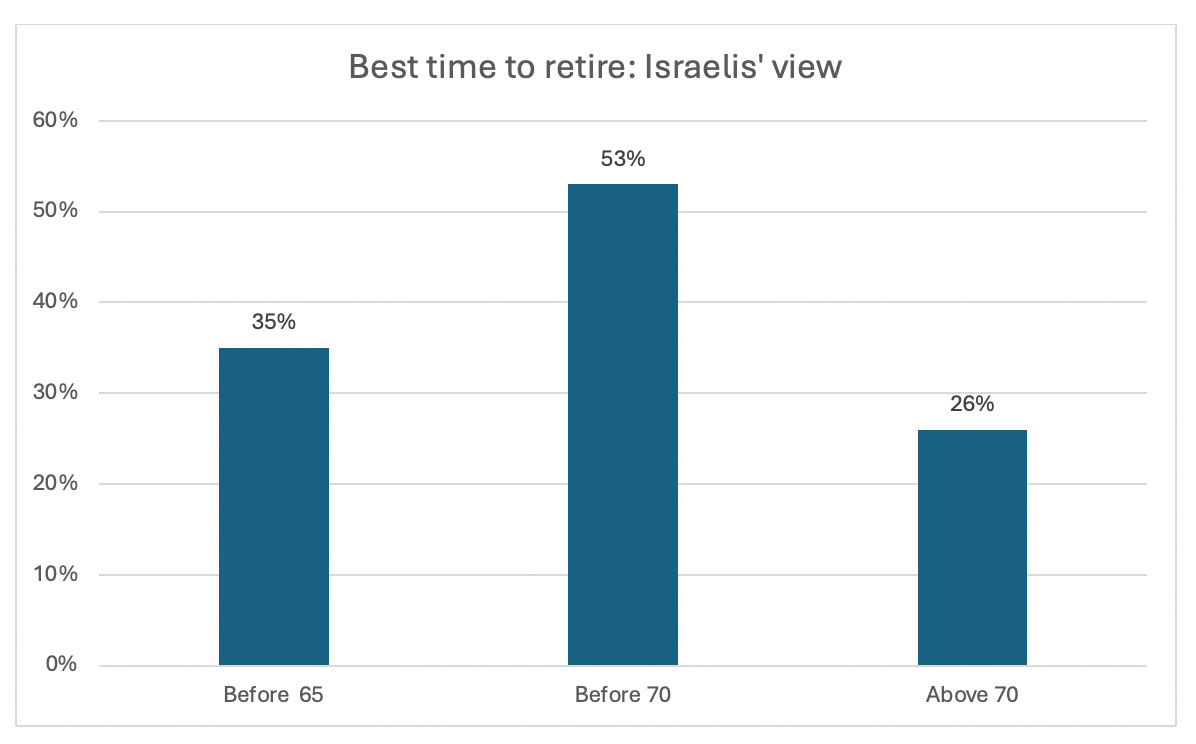
A reader’s response
Maya Barr asks: “Do Israelis understand that Trump is ruining the world’s economy?” Answer: If the downward spiral of their savings continues – they will.
Shmuel Rosner is senior political editor. For more analysis of Israeli and international politics, visit Rosner’s Domain at jewishjournal.com/rosnersdomain.








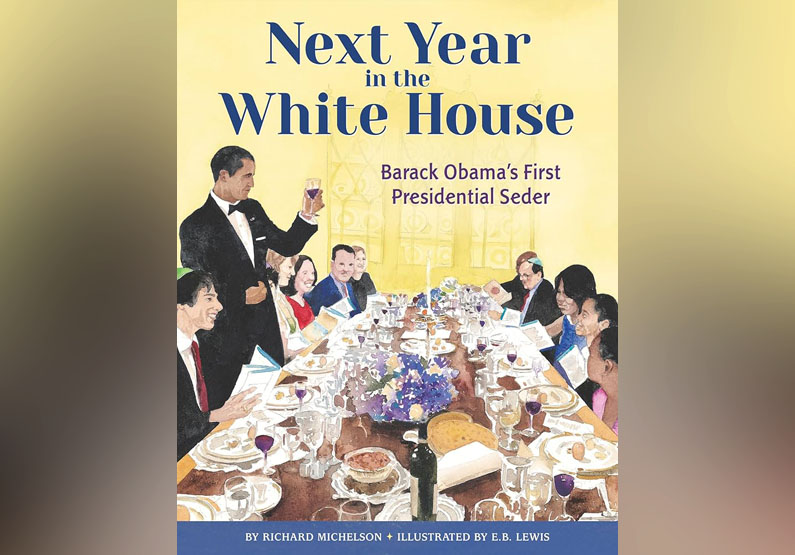
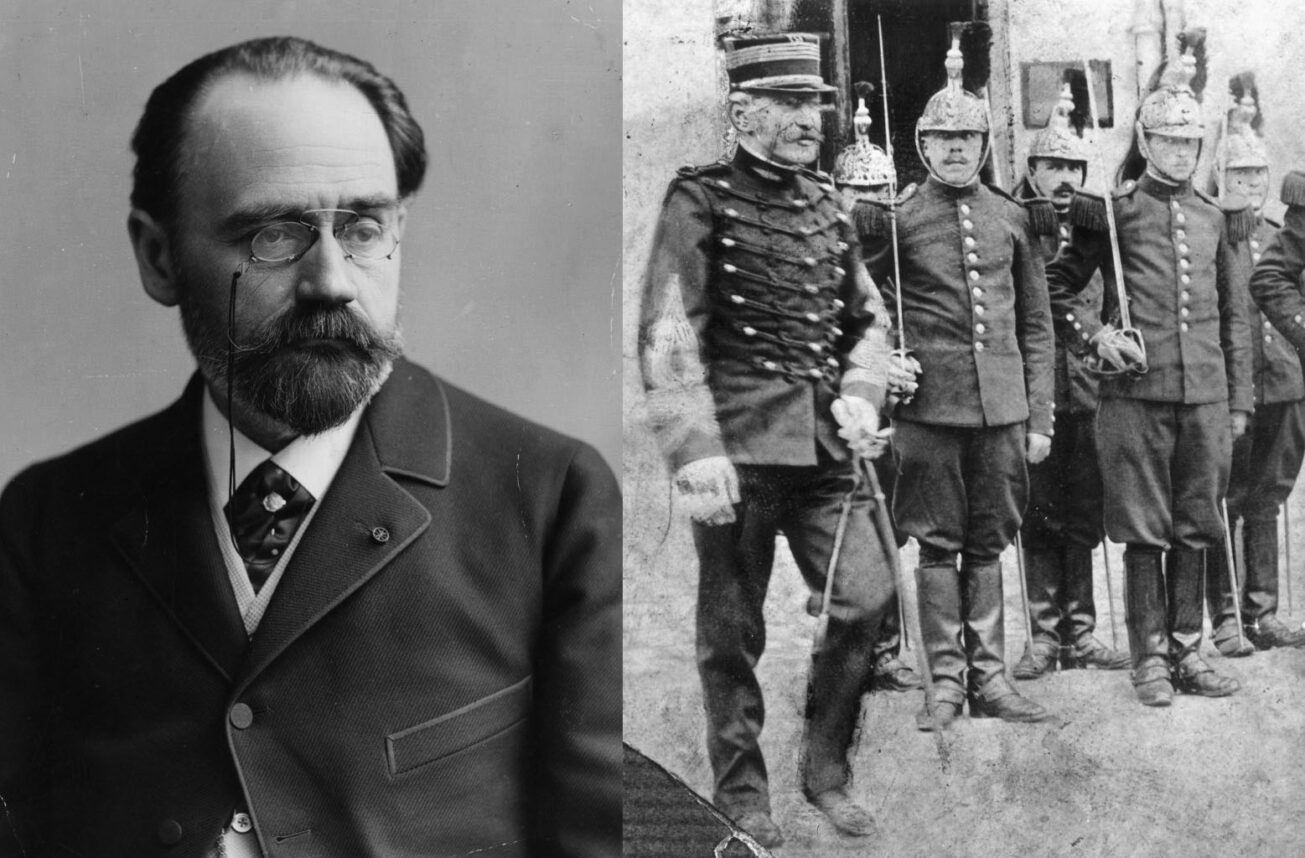
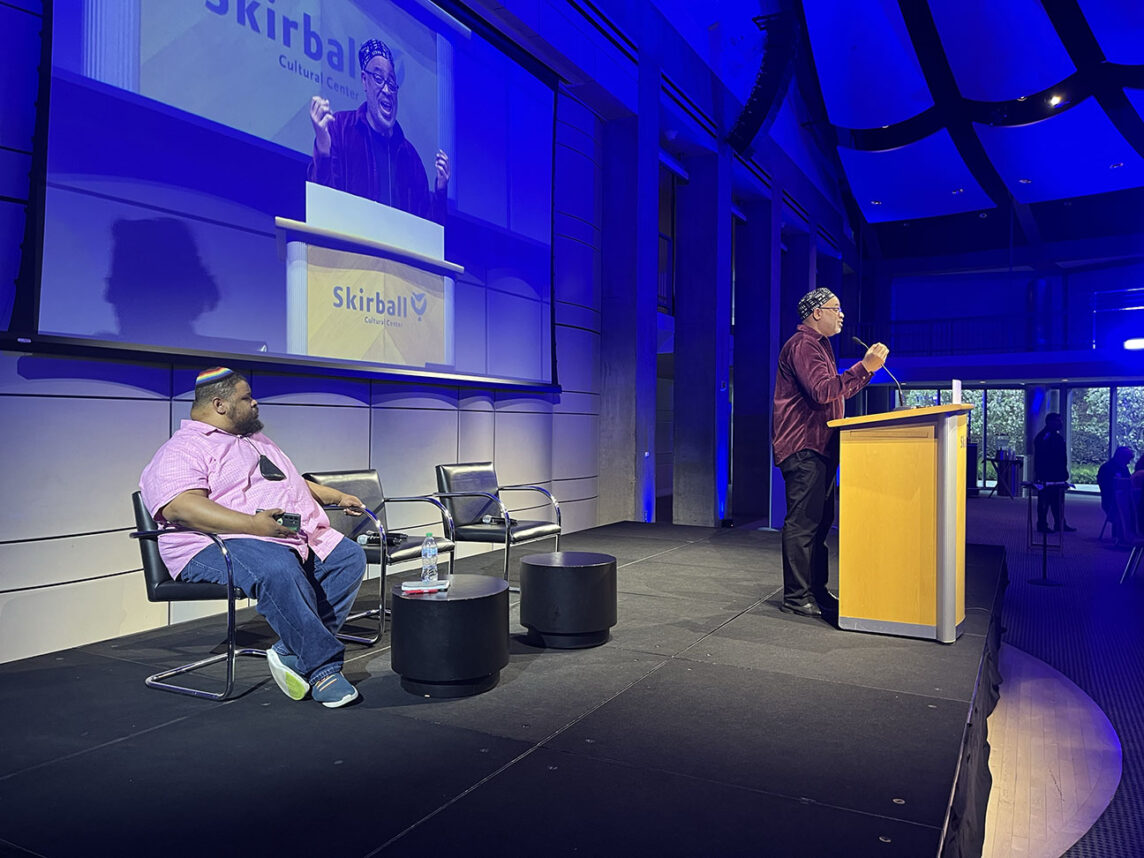










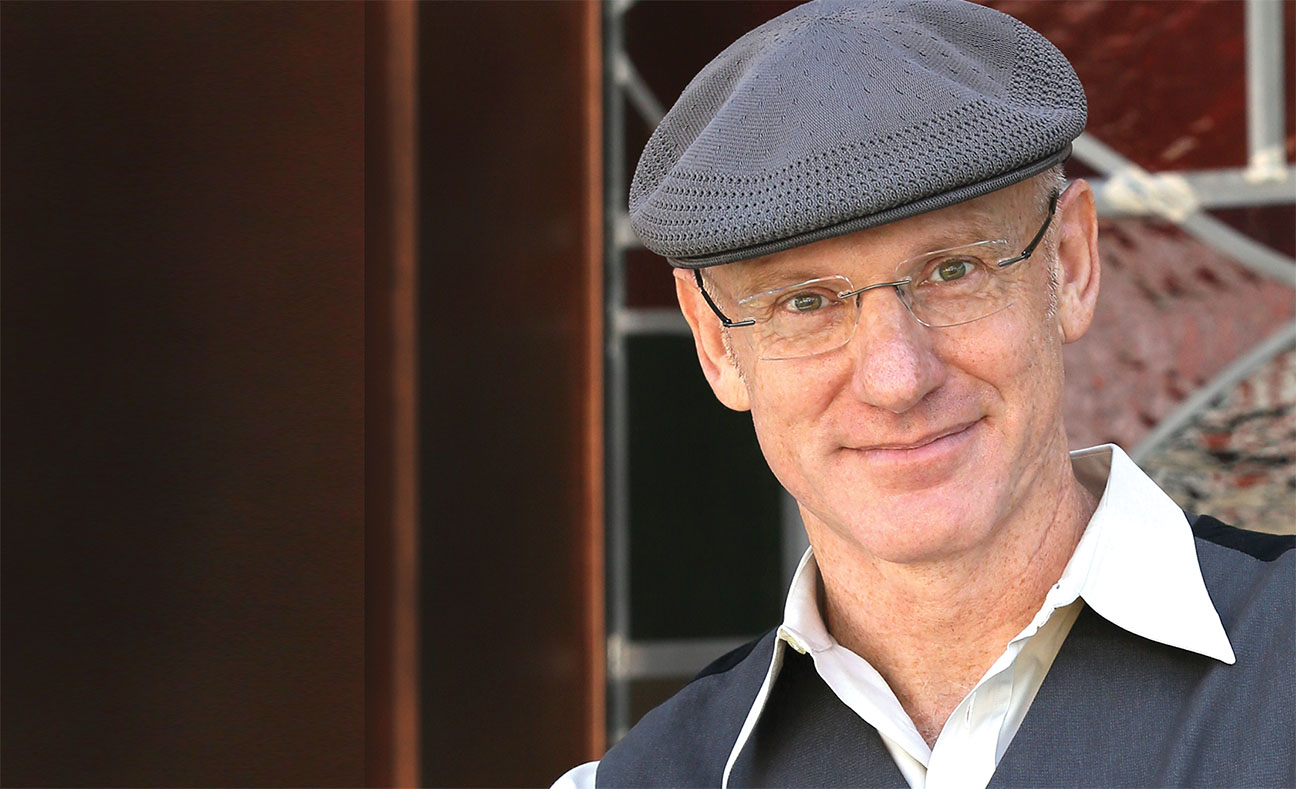

 More news and opinions than at a Shabbat dinner, right in your inbox.
More news and opinions than at a Shabbat dinner, right in your inbox.